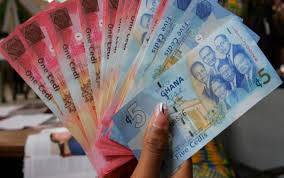The Cedi Among Sub-Saharan Africa's Worst Performing Currencies: An Analysis
In recent years, the Ghanaian cedi has made headlines as one of the worst-performing currencies in Sub-Saharan Africa, as highlighted by the World Bank. This situation is indicative of broader economic challenges faced by Ghana and several other nations in the region. The depreciation of the cedi has profound implications for the country’s economy, affecting inflation, trade, and the livelihoods of its citizens.
Understanding Currency Depreciation
Currency depreciation occurs when a country's currency loses value relative to others. This can be attributed to various factors, including economic instability, inflation, trade imbalances, and external debt. For Ghana, the cedi has faced significant depreciation pressures due to rising inflation, external debt obligations, and fluctuating commodity prices.
Current Economic Landscape
As of the latest reports, the cedi has been consistently ranked among the weakest currencies in Sub-Saharan Africa, alongside others like the Zambian kwacha and the Ethiopian birr. The World Bank's analysis reveals that Ghana’s currency has depreciated sharply against major currencies, including the US dollar. This trend has been exacerbated by a combination of factors, including high public debt, a rising fiscal deficit, and dwindling foreign reserves.
Ghana's inflation rate has also soared, surpassing the 40% mark, which is among the highest in the region. This inflationary pressure has diminished the purchasing power of the average Ghanaian, as prices for essential goods and services continue to rise.
Impact on Trade and Investment
The depreciation of the cedi has significant ramifications for trade and foreign investment. As the currency weakens, imports become more expensive, further straining businesses that rely on foreign goods. For instance, Ghana imports a significant portion of its fuel and machinery, and the increased costs are often passed down to consumers. This creates a vicious cycle where higher prices lead to reduced consumer spending, ultimately hampering economic growth.
Moreover, foreign investors may be deterred by the volatility of the cedi, leading to reduced capital inflows. Uncertainty surrounding currency stability can result in investors seeking safer, more stable environments for their investments, which could limit job creation and economic development in Ghana.
Government Response
In response to the depreciation of the cedi and its impacts, the Ghanaian government has implemented several measures aimed at stabilizing the currency and restoring economic confidence. The Bank of Ghana has intervened in the foreign exchange market to support the cedi, although these efforts have had limited success in reversing the trend.
Additionally, the government has sought assistance from international financial institutions, such as the International Monetary Fund (IMF), to implement structural reforms aimed at addressing the underlying issues contributing to the cedi's decline. These reforms include improving fiscal discipline, enhancing revenue generation, and implementing policies to promote export diversification.
Comparative Analysis
When comparing the cedi with other poorly performing currencies in Sub-Saharan Africa, it becomes evident that the challenges are not unique to Ghana. Countries like Zambia and Ethiopia also face significant economic hurdles, but the context and policy responses vary. For example, while Zambia's economic issues stem from overreliance on copper exports, Ethiopia grapples with political instability and conflict, which exacerbate its economic challenges.
Conclusion
The position of the Ghanaian cedi among the worst-performing currencies in Sub-Saharan Africa highlights the complex interplay of economic factors influencing currency stability. As Ghana navigates this turbulent economic landscape, it is crucial for policymakers to implement effective strategies that not only stabilize the cedi but also foster sustainable economic growth. By addressing underlying issues such as inflation, public debt, and trade imbalances, Ghana can work towards a more resilient economy and a stronger currency. The road ahead is challenging, but with concerted efforts, there is hope for recovery and stability in the Ghanaian economy.



No comments yet
Be the first to share your thoughts!